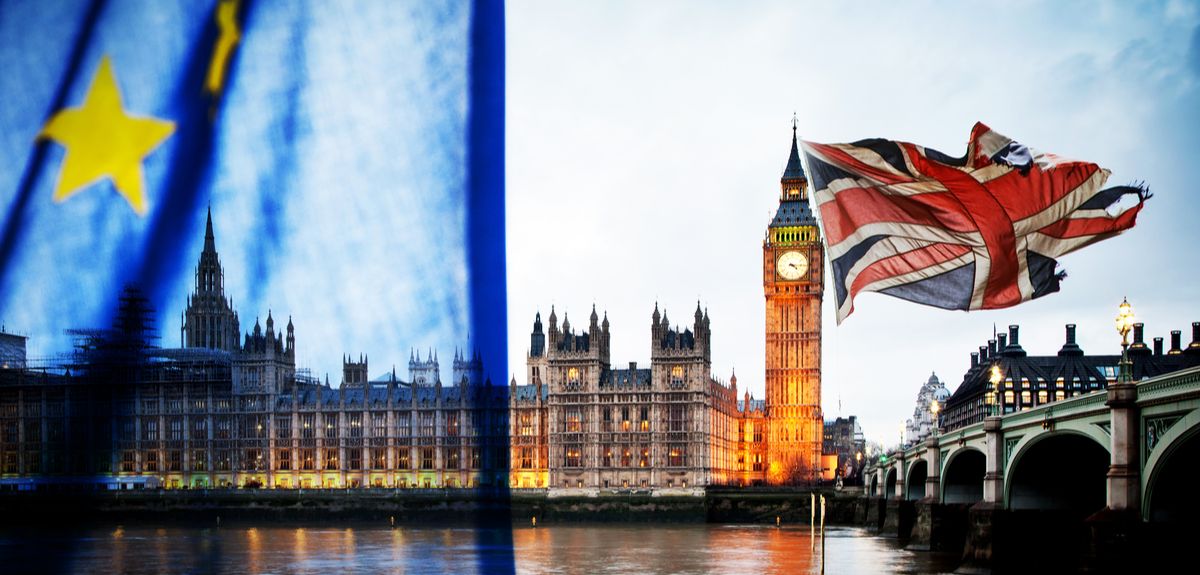
Does Parliament hold the key to solving the Brexit treaty problem?
As Brexit negotiations rumble on with no sign of resolution, researchers have suggested that we could make future government negotiations easier by giving Parliament a larger role in treaty-making.
The authors argue that the best forum for treaty politics is Parliament, and that by changing the rules for treaty scrutiny we can provide stronger democratic accountability and also make it easier for the government to negotiate, conclude, and implement treaties.
The collaborative project, conducted by researchers at the Universities of Oxford, Bristol and the House of Commons Library, examines the role that treaties will play in the post-Brexit constitution. The findings from the paper, and a conference held to discuss the findings earlier this year, were presented in a lecture today at Parliament.
The paper’s core argument is that, if we want to meet the challenges posed by Brexit, we ought to pay closer attention to the constitutional rules that decide how Britain makes treaties. Brexit is bound up in treaties. The Miller case was a debate about the nature and extent of the government’s power to make and unmake treaties. But, this was only one legal strand in a much wider political argument about the power to make treaties. Since then, we have seen debate over the government’s obligation to inform Parliament, about its right to vote on the EU Withdrawal Agreement (which is an international treaty) and about whether the electorate should approve the terms of this treaty in a referendum.
Treaties do shape the way that the UK will leave the EU, but they also assume a new and more urgent importance because the UK is leaving the EU. Issues such as agriculture, fisheries, and trade are currently closely regulated by EU law and by treaties between the EU and third states. Brexit is intended to give the UK a greater measure of control over these rules. By this logic, in order to regulate these issues after Brexit, the UK Government will need to conclude more treaties, and rely less on EU law-making processes. With Brexit, treaties will therefore assume a greater role in the governance of the UK. However, unless something is done, democratic scrutiny of treaties will actually diminish. For example, the legislatures in Northern Ireland, Scotland and Wales have separate duties to implement treaty obligations in their areas but their input into treaty-making is limited.
Ewan Smith, co-author and Shaw Foundation Junior Research Fellow at Jesus College and the Oxford Law Faculty, said: ‘Brexit has already put pressure on Britain’s outdated system for negotiation, conclusion and incorporation of treaties. The more we rely on government-by-treaty, the more our constitution will need to regulate the politics of treaty-making. Treaties are political. All governments face challenges in persuading the public that compromise is needed to achieve foreign policy goals. If people are not satisfied by the compromises embodied in the Treaty of the EU, then there is little reason to suppose that they will be satisfied by the presence of chlorinated chicken in supermarkets, or the need to grant freer movement in return for market access.’
The issue is, of course, political, but it is also technical. Other examples, including New Zealand, Australia and the EU, all suggest different ways in which parliament and the government can work together in concluding treaties, without compromising the government's ability to conduct its foreign policy.
Yesterday’s presentation at Parliament included discussion of practical solutions to treaty issues such as a new parliamentary treaty scrutiny committee with flexible procedures for a wide range of treaty actions; new treaty information and consultation requirements; and new ways of involving the devolved legislatures. These show that Parliament and its committees could play a powerful role in ensuring that the Government’s treaty actions are effective, well-supported and constitutionally sound.
The researchers involved in this project are:
- Ewan Smith, Shaw Foundation Junior Research Fellow at Jesus College and the Oxford Law Faculty
- Arabella Lang, founder the Parliament and Treaties Hub in the House of Commons
- Eirik Bjorge, Professor at the University of Bristol Law School
 Statins do not cause the majority of side effects listed in package leaflets
Statins do not cause the majority of side effects listed in package leaflets
 Activism proves a stimulating topic at Sheldonian Series event
Activism proves a stimulating topic at Sheldonian Series event
 New Oxford-led initiative launches to train future leaders in transformative technologies for pharmaceutical research
New Oxford-led initiative launches to train future leaders in transformative technologies for pharmaceutical research